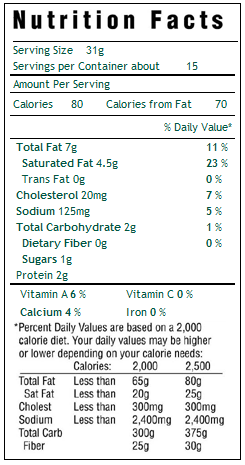In its application filed on December 24, WO2014205340, inventors Paloma Carrington-Bataller, Janet Batz and Isabelle Marie Francoise Laye identify cream cheese as a good protein source of protein with which to help meet current US RDAs for protein – 56g/day and 46g/day for average adult males and females respectively.
Cream cheese is typically soft, mildly acidic, acid-coagulated uncured cheese made from a mixture of cream and milk. It is mixed, pasteurized, homogenized and cooled, then fermented with lactic acid bacteria and coagulated, packaged and chilled.
‘Undesirable texture, smoothness, organoleptic properties’
“Attempts to increase the protein level in conventional cream cheese compositions tend to result in processing and/or textural shortcomings, such that the cream cheese with a higher protein level relative to conventional cream cheese may compromise [with] undesirable texture, smoothness and/or other organoleptic properties,” Kraft’s application states.
“Prior cream cheese typically had either higher fat levels and lower protein or much lower to no fat levels and higher protein. The compositions herein are able to achieve high protein with moderate levels of fat yet still achieve the creaminess of spreadable cream cheese,” the inventors write.
They say their compositions can be used to create cream cheese with at least double the protein compared with conventional products – at least 4-5g of protein per 28-32g serving – and no more than circa. 14% fat.
Smoothness, spreadability and mouthfeel…

Kraft’s scientists claim that their compositions have the same smoothness, spreadability and mouthfeel of conventional cream cheese at both room temperature and refrigerator temperature.
“The high protein cream cheese products or compositions herein may generally include cheese curd, cultured dairy liquid, protein powders and moisture in select relationships to achieve the high protein and/or calcium levels and maintain the desired product characteristics,” they write.
Kraft also applies to protect methods for fortifying its added-protein cream cheese compositions with extra calcium – typically lost during manufacture – with 280-385mg/100g of calcium added from the cheese curd.
“Such compositions may also include at least double the calcium found in conventional cream cheese compositions and products, such as two to five times more calcium,” the scientists write.
Kraft’s inventors also suggest that its processes for producing high protein cream cheese could be extended to processes for creating foods with cream cheese and one or more additional food components, i.e. confectionery or bakery products – via filling, coating or layering.
